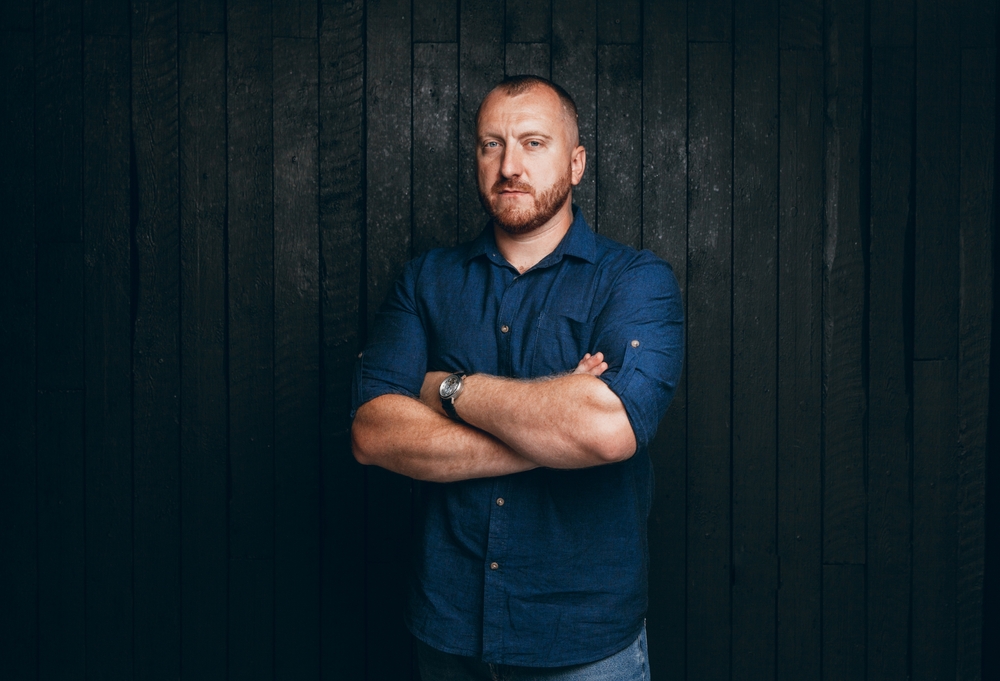Everyone’s childhood is different, and some people with more trauma than others.

No parent is perfect, but some parents are downright toxic and have extremely damaging tendencies. If you grew up in a toxic environment, it can be hard to shake, and it’ll impact you for a long time to come. Here are several signs you’re repeating the same toxic patterns that damaged you as a child.
1. You attract similar people.

When you get into a relationship or make friends with someone, how do they compare to your parents? Do you find they have similar qualities? If your childhood was traumatic, and as you grew up, you were shaped by toxic behavior, you might find you surround yourself with similar people. This is because even though the behavior was toxic, it’s familiar — it’s all you know. For example, your mom might have been controlling, dictating your every move from when you woke up. This is why you get into relationships with people who behave similarly.
2. Your interests are warped.

If you suffered from toxic patterns that hurt you as a child, you might repeat these through warped interests. For example, maybe you’ve developed an addiction to fast food, specifically McDonald’s, because you remember as a child that the only time things were good was when your mom took you there. As an adult, you crave that emotionally stable feeling that eating fast food brought you, and the comfort of being at the restaurant and away from home.
3. Physical intimacy is an issue.

You might struggle to be intimate in relationships. If your parents never hugged you or showed any physical affection towards you and your siblings, you might find it challenging to give it and receive it with your partner. Whenever your partner tries to hug you, you stiffen and pull away. This creates tension and distance, which could derail your relationships for good.
4. You have a bad attachment style.

One way you’re repeating the toxic patterns of your childhood is through your attachment style. For instance, you might have an insecure attachment style with your partner. This means you have an unbearable feeling they’ll walk out the door one day and abandon you, so you’re overly clingy. You insist you do everything together, get anxious when they go to work, and forget to text you halfway through the day.
5. You’re controlling.

If your parents were overly controlling as a child, chances are this behavior is being repeated in your adult relationships. Even on a friendship level, you find it difficult not to dominate the relationship. Maybe you get jealous when your best friend talks to their other friends. Ideally, you want to be their only friend, which is why you insist on hanging out one-on-one every time you see them.
6. You’re overly jealous.

If one of your parents left when you were younger, how you coped with this might come out in adult relationships. For example, maybe you’re insecure about your relationship with your partner and overly jealous. You constantly look at their social media and question them when someone comments on their post. When you’re out together, you accuse them of flirting with the wait staff or being overly friendly with a mutual friend.
7. You overthink.

If your parents left you alone with your thoughts a lot of the time as a child, you might tend to overthink as an adult. You might find this particularly troublesome when dating. For instance, say you go on a date with someone you met on a dating app and think the date went well. Your date said they would text you, and it’s been three days. All you can think about is how they have yet to text you and whether you should interpret this as bad. You go over and over the date in your head, trying to see if you can pick out anything that might have gone wrong.
8. You have a hard time communicating.

If your parents had bad communication skills when you were growing up, then you might be repeating this toxic pattern in your adult relationships. Maybe you shut down whenever you and your partner disagree about something instead of maturely talking through it and hearing out the other person. You stop listening to them, walk away, and then ignore them for the rest of the day. You don’t know how to resolve disagreements maturely because of your childhood.
9. You haven’t healed.

If you haven’t healed from the toxic patterns in your childhood, then this wound will become a crux in your future relationships. For example, whenever you fight with your partner, maybe it always ends with you bringing up your childhood trauma, using it to justify why you’re being condescending, calling your partner names, and refusing to take accountability for your part in the disagreement. Instead of healing from it, you weaponize it.
10. You crave the good times.

Because so much of your childhood was bad, you lived for the times when it was good, and you do this now too. Your partner finds that you never take anything seriously and prefer to live in the moment. For example, when it’s the weekend, you stay up all night and sleep all day, and when Monday comes, and you’ve got to sit down and get back to work, you crash and burn.
11. You have anxiety.

Anxiety is prevalent these days, especially in people who’ve never resolved their childhood trauma. If you have an anxiety disorder, it’s most likely because you haven’t been able to move on from what happened to you in the past. Home life was so chaotic that you lived in a state of constant anxiety, and you do the same in your current relationship. Even though your partner has tried to reassure you, you get anxious when they leave you alone for too long to go to work or out with friends.
12. You disrespect other people — and yourself.

If your childhood was complex and fraught with toxic patterns of behavior, you might find that as an adult, it’s all too easy to disrespect not only yourself but other people too. You frequently find yourself in relationships where you allow your partner to talk down to you, criticize you, and insult you daily, but it’s even more toxic because you do the same to them. You’re caught in a toxic spiral of disrespect.
13. You live in the past.

If you have brought toxic patterns of your childhood into your adulthood, then you might struggle not to live in the past. For example, maybe you still have nightmares at night when you toss and turn, yell out in your sleep, and even unintentionally hit your partner. You wake up covered in sweat and often struggle to go back to sleep for the rest of the night.
14. You mistrust easily.

If you had difficulty trusting your parents growing up, you most likely have difficulty trusting everyone as an adult. For example, you rarely get too close to anyone, let alone allow them to get close to you. When you make friends with someone, it takes you a long time to warm up to them. Even when they confide in you about current issues, like their relationship, you keep your cards close to your chest, and they complain that there’s so much about you they still don’t know.
15. You self-sabotage.

If you’re repeating toxic patterns from your childhood, you might know what it’s like to self-sabotage, per Verywell Mind. Maybe you fall in love easily and love hard, but you push them away whenever someone you’re dating gets too close. For example, you start fights with them about nothing, accusing them of flirting or not coming straight home from work. You’re not familiar with what a healthy relationship looks like, so you sabotage the one you’re in.



